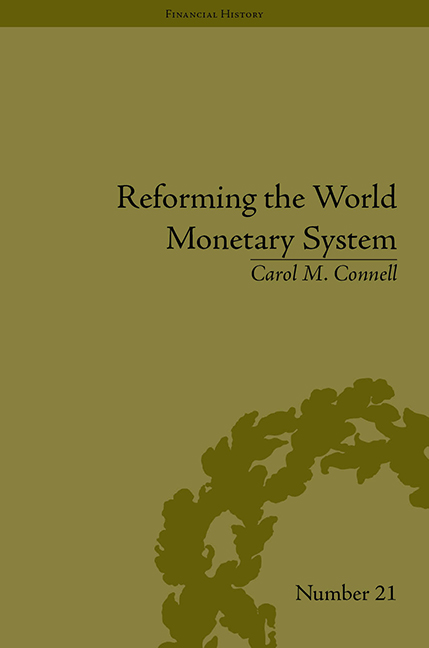Book contents
- Frontmatter
- Contents
- Acknowledgements
- List of Figures and Tables
- Introduction
- 1 A Crisis in Confidence
- 2 Fritz Machlup, his Research and Methodology
- 3 Robert Triffin and the Triffin Plan
- 4 William Fellner and the Intersection of Macro and Microeconomics
- 5 Why Economists Disagree: The Role of Framing in Consensus Building
- 6 ‘Assuring the Free World's Liquidity’ through Multiple Reserve Currencies
- 7 Milton Friedman and the Arguments for Flexible versus Fixed Exchange Rates
- 8 Collaboration with the Group of Ten
- 9 Adjustment Policies and Special Drawing Rights: Joint Meetings of Officials and Academics
- 10 From the Bellagio Group to the Bürgenstock Conferences
- 11 From the Bellagio Group and Joint Conferences of Officials and Academics to the Group of Thirty
- 12 Reassessing the Bellagio Group's Impact on International Monetary Reform
- 13 The Impact of the Bellagio Group on International Trade and Finance Scholarship from the 1960s to the Present
- Conclusions
- Notes
- Works Cited
- Index
1 - A Crisis in Confidence
- Frontmatter
- Contents
- Acknowledgements
- List of Figures and Tables
- Introduction
- 1 A Crisis in Confidence
- 2 Fritz Machlup, his Research and Methodology
- 3 Robert Triffin and the Triffin Plan
- 4 William Fellner and the Intersection of Macro and Microeconomics
- 5 Why Economists Disagree: The Role of Framing in Consensus Building
- 6 ‘Assuring the Free World's Liquidity’ through Multiple Reserve Currencies
- 7 Milton Friedman and the Arguments for Flexible versus Fixed Exchange Rates
- 8 Collaboration with the Group of Ten
- 9 Adjustment Policies and Special Drawing Rights: Joint Meetings of Officials and Academics
- 10 From the Bellagio Group to the Bürgenstock Conferences
- 11 From the Bellagio Group and Joint Conferences of Officials and Academics to the Group of Thirty
- 12 Reassessing the Bellagio Group's Impact on International Monetary Reform
- 13 The Impact of the Bellagio Group on International Trade and Finance Scholarship from the 1960s to the Present
- Conclusions
- Notes
- Works Cited
- Index
Summary
Introduction
Nearly a half-century before the financial crisis of 2008–9, there was another time (conservatively, from 1959, when Triffin first presented his analysis to a Congressional committee, to 1977, the end of the Bellagio Group conferences, which is the period covered in this book) when reforming the world monetary system was on everyone's lips. Many academics and policymakers were formulating plans for its reconstruction before illiquidity, speculation and loss of confidence brought the system to a predicted ruin. Not since the Great Depression was the fear of a total financial meltdown so real.
In his statement before the US Congress, economist Robert Triffin articulated the problem that would become known as the ‘Triffin Paradoxs’. That is to say, as the global economy expanded, the United States – as the marginal supplier of the world's reserve currency – could continue to supply reserve assets to foreigners by running a current account deficit and issuing dollar-denominated obligations to fund it. If the United States ever stopped running balance of payments deficits and supplying reserves, the resulting shortage of liquidity would pull the global economy into a contracting spiral. Nevertheless, Triffin warned that if the deficits continued, excess global liquidity risked fuelling inflation. Moreover, the build-up in dollar-denominated liabilities might cause foreigners to doubt whether the United States could maintain gold convertibility or might be forced to devalue, thus undermining confidence in both the dollar and the monetary system depending on the dollar.
- Type
- Chapter
- Information
- Reforming the World Monetary SystemFritz Machlup and the Bellagio Group, pp. 7 - 22Publisher: Pickering & ChattoFirst published in: 2014



